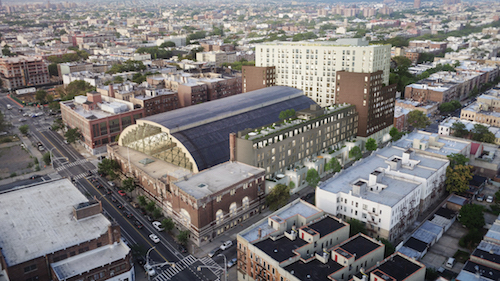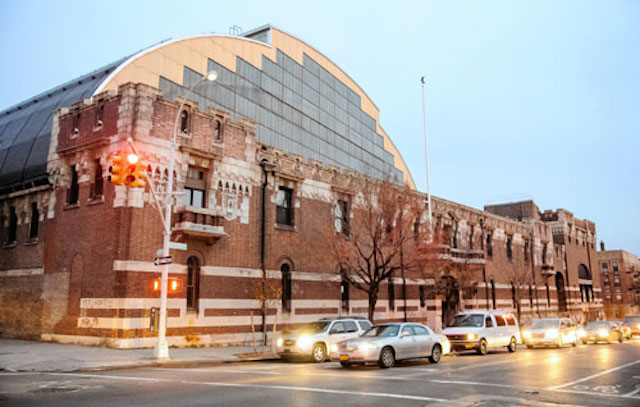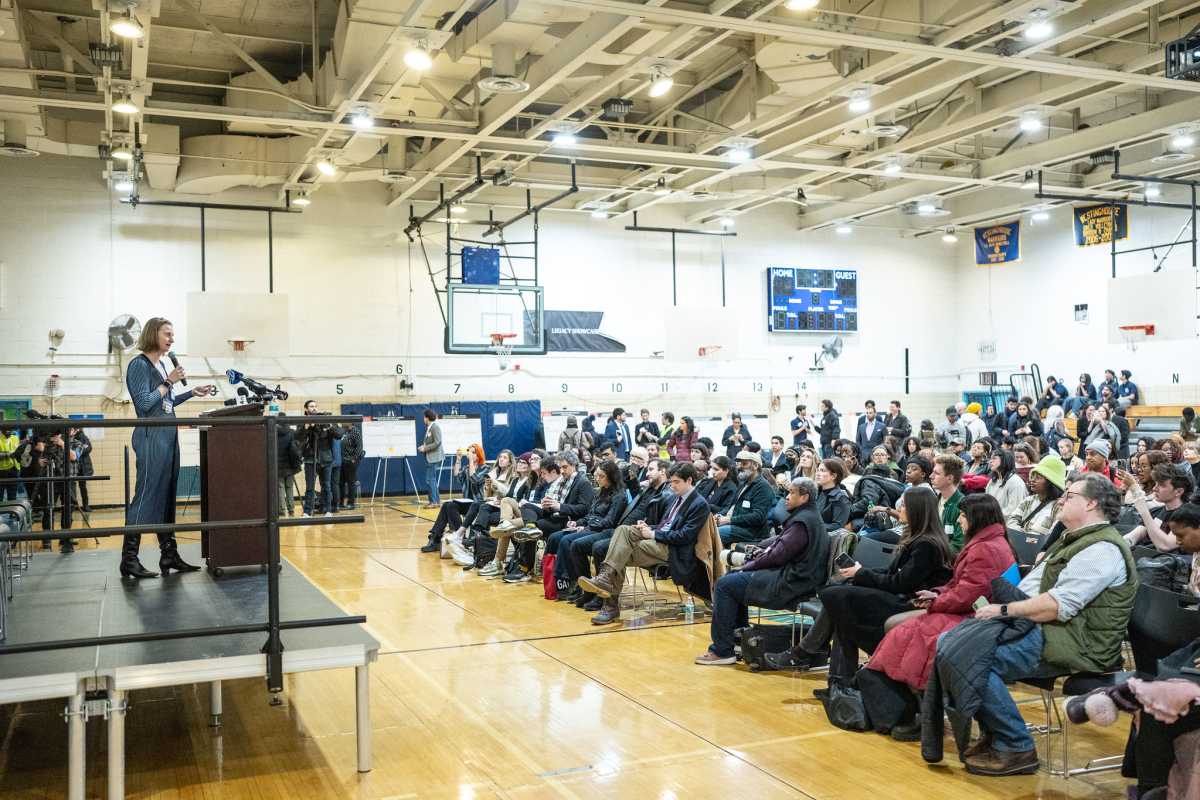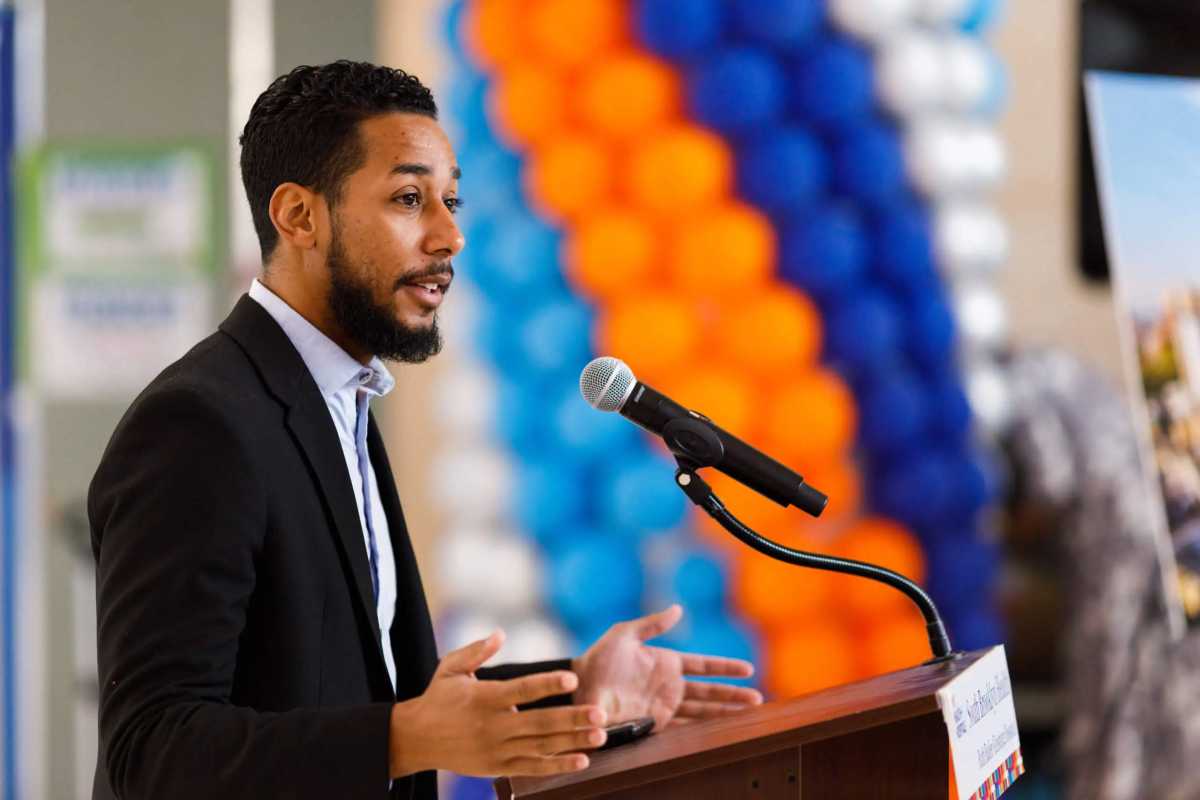Would you rather give your children a safe place to play or preserve the character of your neighborhood? Who comes first: your kids or your neighbors?

This was the false choice that Crown Heights residents were forced to debate at Brooklyn Community Board 9’s hearing on BFC Partners’ proposed redevelopment of the Bedford Armory. The developer has split the community with its promises to build sporting facilities and office space for non-profits in exchange for the right to build fancy apartments priced beyond the reach of residents.
Especially now that CB 9 has voted to reject the development, I stand with the elected officials who reject this false choice and the cruel compromises it asks of Crown Heights. Already, virtually every elected has stood in opposition to the project, from Borough President Eric Adams to State Senator Jesse Hamilton. Both the incumbent City Councilwoman for Crown Heights, Laurie Cumbo, and her challenger, progressive organizer Ede Fox, oppose the plan. Ede got to the heart of the matter in her official statement:
“You can have both the affordable housing this community needs and the community center that our youth should have access to…. Don’t settle for crumbs, demand the whole pie, we deserve it.”
The consensus is clear: this is the last major plot of public land in the neighborhood and the community needs to hold out until we get everything we need. The question is, “How?” From my own experience, I know that it can be very difficult to broker a good development deal. (I was part of the New York City team at the Empire State Development Corporation, where I helped oversee nearly $250 million in job-creating investments in New York and Brooklyn.)

The fact is that sometimes public and private interests just don’t overlap enough for a public-private partnership to meet all of its public goals, such as in this case, where residents are right to demand 100% affordable housing. What happens when New York City’s inclusionary housing policies–the de Blasio administration’s main affordable housing strategy, which incentivizes private developers to build affordable and luxury units together–simply fails to produce enough affordable units?
Inclusionary housing is a powerful tool but has real limits. There are numerous examples of cases where the underlying value of the public property is high enough to justify a private developer building many units of permanently affordable housing. This past February, the administration selected Jonathan Rose and Company to build the completely affordable Sendero Verde development between East 111th and 112th streets in Harlem. The project also included healthcare and sporting facilities.
But in the case of the Bedford Armory, the job may simply be too expensive for a private developer to agree to help foot the bill and build what the community needs. The Armory is a massive building; construction within it will be hugely expensive. What then? In fact, the de Blasio administration is already beginning to explore an idea that deserves attention, support, and resources: community land trusts.
As outlined in a public call for ideas in January, the de Blasio administration has boldly solicited local groups to apply to develop these trusts. Community land trusts are non-profit organizations run by community members and charged with developing and maintaining affordable housing or other amenities built on public land. Because the trust is run as a not-for-profit, it can undertake a gradual development that needn’t meet a private company’s criteria for profitability. The de Blasio administration should consider establishing and capitalizing the Crown Heights Community Land Trust.
However, it may prove that even such a trust could not handle the timely development of affordable housing and community amenities. In that case, the City needs to make up the difference. Already, the subsidy offered to BFC Partners amounts to approximately two-thirds of the value of the project. However, that final third is not too much to pay. Crown Heights is a neighborhood without even a safe park for our youth, chronically short-changed of new investments (unless that investment consists of new homeless shelters). Maybe a private developer won’t invest in affordable housing at the Bedford Armory. That doesn’t mean that the community doesn’t deserve it.
Adem Bunkeddeko is a resident of Crown Heights and a member of Brooklyn Community Board 8










